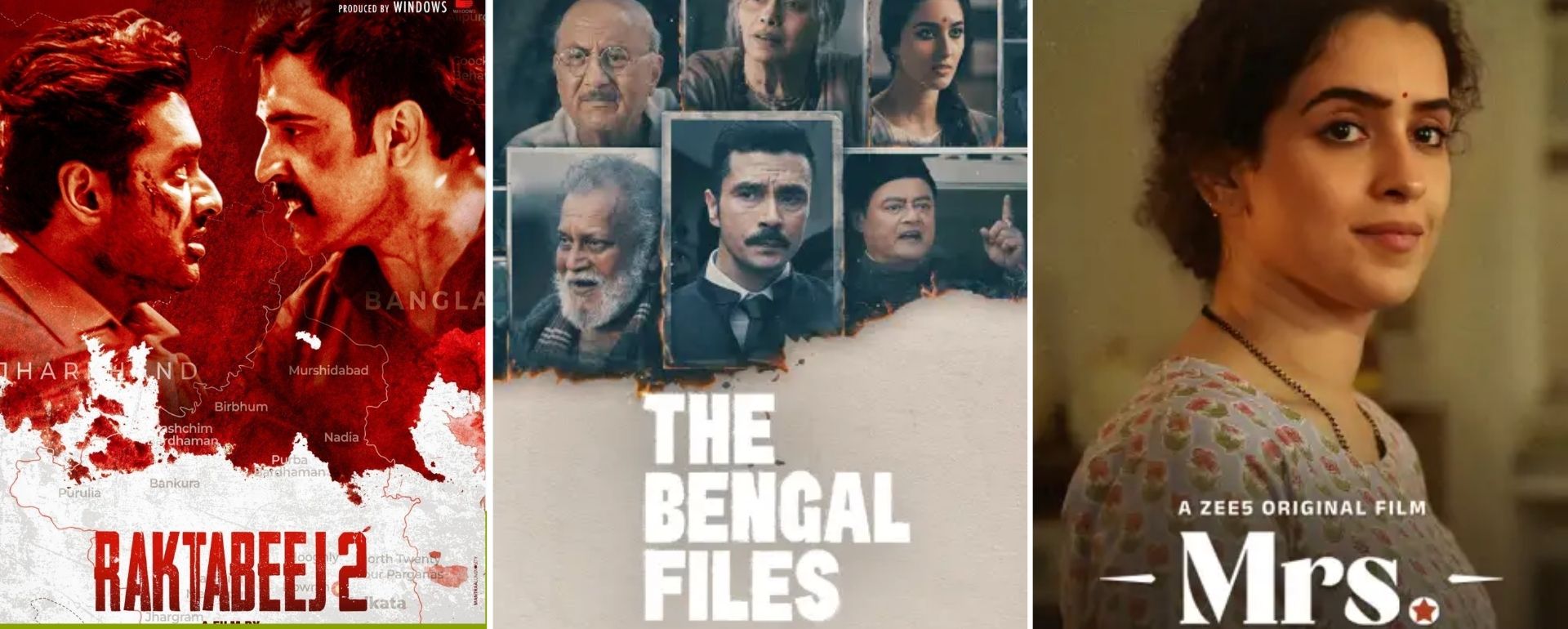A newlywed is accused of dowry harassment and domestic abuse. Overnight, the “perfect” marriage turns into a case file, and a small-town courtroom becomes the arena where reputations live or die. Aabhyanthara Kuttavaali streams on 17 October 2025—a Malayalam family–legal drama led by Asif Ali and written–directed by Sethunath Padmakumar that treats truth like evidence: carefully gathered, calmly tested, and never taken for granted.
If you’re building a regional lineup around the premiere, start with our curated Malayalam movies rail—then make Aabhyanthara Kuttavaali your first play.
Cast & Characters of Aabhyanthara Kuttavaali: Faces That Carry the Argument
Asif Ali headlines as Sahadevan, a middle-class husband who insists on innocence even as neighbours whisper and relatives choose sides. Thulasi plays Nayana, the wife whose complaint detonates the household. The legal chessboard is crowded with heavy-hitters: Jagadish steps in as Adv. Vishwanathan, the seasoned counsel who knows how to make a pause feel like pressure; Harisree Ashokan appears as Makkar, adding brittle humour that snaps into gravity when the facts demand; Shreya Rukmini’s Adv. Anila and Vijayakumar’s Adv. Rex Arackal sharpened the arguments from the other side. The ensemble is built for friction—and for empathy.
10 Reasons To Not Miss Aabhyanthara Kuttavaali on 17th
Aabhyanthara Kuttavaali tracks Sahadevan’s slide from affectionate newlywed to accused man, and the system’s attempt to decide what really happened behind closed doors. The blueprint is clean: complaint → charge → counsel → court → consequence.
Here are 10 reasons why it’s unmissable:
1) Asif Ali is in full control of a slow-burning part
Sahadevan’s arc isn’t designed for showy speeches; it’s built on micro-reactions—the split-second between accusation and answer, the wince you hide so your parents don’t break. Asif plays that bandwidth with restraint, letting credibility accumulate scene by scene. When he finally pushes back, it lands.
2) A courtroom that feels procedural, not theatrical
This family film treats the court as a workspace. Affidavits matter. Dates matter. The order of questions matters. You won’t see the furniture of a trial used as props; you’ll see process—objections, exhibits, a witness who derails a narrative by simply refusing to be led. That respect for procedure makes every ruling sting.
3) A marriage examined without moral grandstanding
Aabhyanthara Kuttavaali refuses easy binaries. It understands how love, ego, and expectation can twist even well-meaning people into adversaries. Scenes at home are framed like depositions—each word carries weight, each silence an inference. The drama film trusts viewers to read subtext without being spoon-fed it.
4) Veterans who change the temperature of a room
Put Jagadish across a witness and you feel time slow; put Harisree Ashokan next to a smirking bystander and you see confidence drain. Their presence is a fairness test for the script: if a scene survives actors this precisely, it has nothing to hide.
5) A debutant director with a measured hand
Sethunath Padmakumar keeps geography legible and emotions grounded. The camera doesn’t chase importance; it assigns it—holding on a pen that hesitates over a signature, cutting away from an outburst to the clerk who has to write it down. That’s how you make a domestic story feel universal.
6) A score that knows when to vanish
With Bijibal (songs) and Rahul Raj (background) in the mix, the music is a partner, not a crutch. Key passages breathe in silence so that when the theme returns—soft strings under a testimony, a single motif under a verdict—you feel the floor move.
7) A social issue handled with clarity
Dowry-related charges and domestic disputes are combustible topics. The film keeps the frame tight: facts first, feelings second. You see the institutional pathways—police, protection officers, legal aid—alongside the family pathways—elders mediating badly, friends picking sides. The net effect is empathy without erasure.
8) Writing that rewards attention (and rewatching)
Watch for repetition: a phrase that returns, a date that won’t align, a photo that tells the truth in the background. Aabhyanthara Kuttavaali plays fair—planting cues early and paying them off late—so a second viewing turns observations into confirmations.
9) A runtime tuned for a single sitting
At roughly 121 minutes, the story is long enough to breathe and short enough to hold. No detours, no mood-killing gimmicks—just evidence, cross, fallout, and the stubborn hope that the system still works. Block a two-hour window; let the argument run.
10) A premiere designed for conversation
This is the kind of film that ends and starts a debate: What counts as proof at home vs. in court? When do good intentions become pressure? Who gets to decide what “respect” looks like? On 17 October, watch first—and then talk. That’s the point. Also, it’s available in Tamil and Malayalam on ZEE5, so that’s a win too, right?
How to Get the Best First Play
Keep the room quiet and the phone away; Aabhyanthara Kuttavaali is built on small tells—hesitations, overlaps, the half-second where a voice cracks and a lawyer pounces. If you’re watching in a group, agree on a “pause only for water” rule. The momentum of a case is part of its meaning.
Final Word
Some dramas chase noise; Aabhyanthara Kuttavaali chases accuracy—of feeling, of process, of consequence. Asif Ali brings the weight; the ensemble brings the grain; the direction brings the calm. Circle 17 October and give this premiere a focused window. When the credits roll, you’ll have more than a verdict—you’ll have a conversation worth having.
Bio of Author: Gayatri Tiwari is an experienced digital strategist and entertainment writer, bringing 20+ years of content expertise to one of India’s largest OTT platforms. She blends industry insight with a passion for cinema to deliver engaging, trustworthy perspectives on movies, TV shows and web series.





